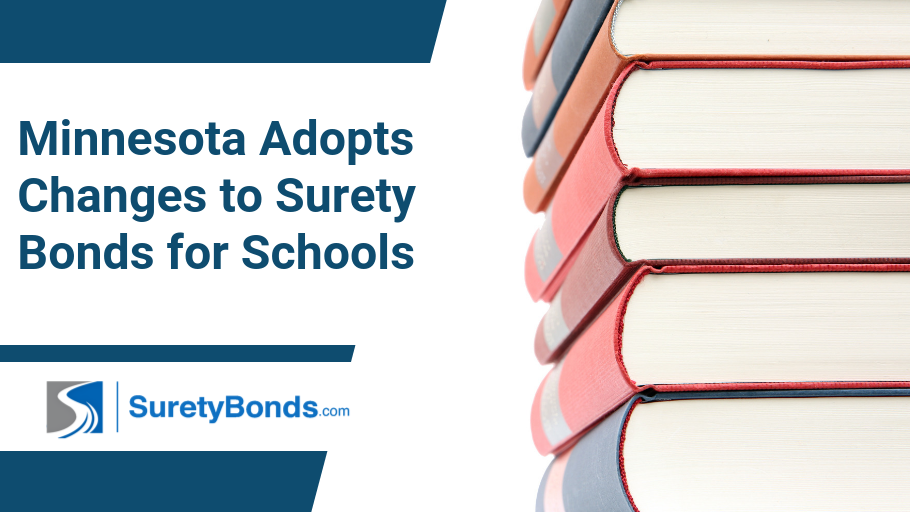Post-secondary education institutions that have received conditional approval to grant degrees must obtain a surety bond. Senate Bill 2415 was passed on May 20, 2019, and contained changes relating to the types of schools that are required to post a surety bond.
What is a post-secondary educational institution?
A post-secondary educational institution is an educational program for high school graduates who are seeking further education. Examples of post-secondary educational institutions include public and private universities, community colleges, mechanical and technical trade schools, and fire and police academies. The Minnesota Office of Higher Education can grant conditional approval to post-secondary education institutions to allow them to operate while they go through the accreditation process. If a school is not accredited, it cannot grant degrees, participate in financial aid programs, or use the words “college” or “university” in its title. Conditional approval can be granted to new schools seeking accreditation as well as registered schools seeking a new accrediting agency that is recognized by the United States Department of Education. More information on conditional approval can be found in Section 136A.65 of the Minnesota Statutes.
What are the new bond requirements?
The new bill requires all post-secondary institutions that have received conditional approval in Minnesota to post a surety bond. Previously, only institutions that had fallen below the state’s minimum financial standards had to provide a surety bond. This minimum financial standard is put in place for any school that participates in Title IV, which allows students to receive federal aid.
Why do I need a Minnesota school bond?
The surety bond acts as security to ensure that the school is complying with state laws. In the case that an institution must close, the money guaranteed by the surety bond will first be used to destroy private educational data and student records and then for tuition reimbursement. The main goal of the surety bond is to protect the students’ personal information and provide them with financial compensation. The surety company will pay up to the amount of the bond, then the institution will be required to pay the surety back.
How much does a Minnesota school bond cost?
The bond cost will be a small percentage of the total bond amount. Each specific institution’s bond amount will be equal to 10% of the net revenue from tuition and fees in the prior fiscal year. The bond amount must be no less than $10,000 and cannot exceed $250,000. The bond premium is determined by the applicant’s personal credit and other financial information. Depending on the applicant’s financials and bond amount, the premium to be paid by the applicant is usually between 0.75% and 5% of the bond amount. Minnesota school bonds must be renewed annually and, since they are based on credit, the premium is subject to change if the applicant’s credit has changed over the course of the previous year.
Need a surety bond for a Minnesota school?
The experts at SuretyBonds.com have years of experience issuing surety bonds for schools nationwide, meaning they know what it takes to get the bond you need while saving you time and money. Apply online for your free, no-obligation quote at SuretyBonds.com, or give us a call at 1 (800) 308-4358 for answers to all your surety bond questions.
